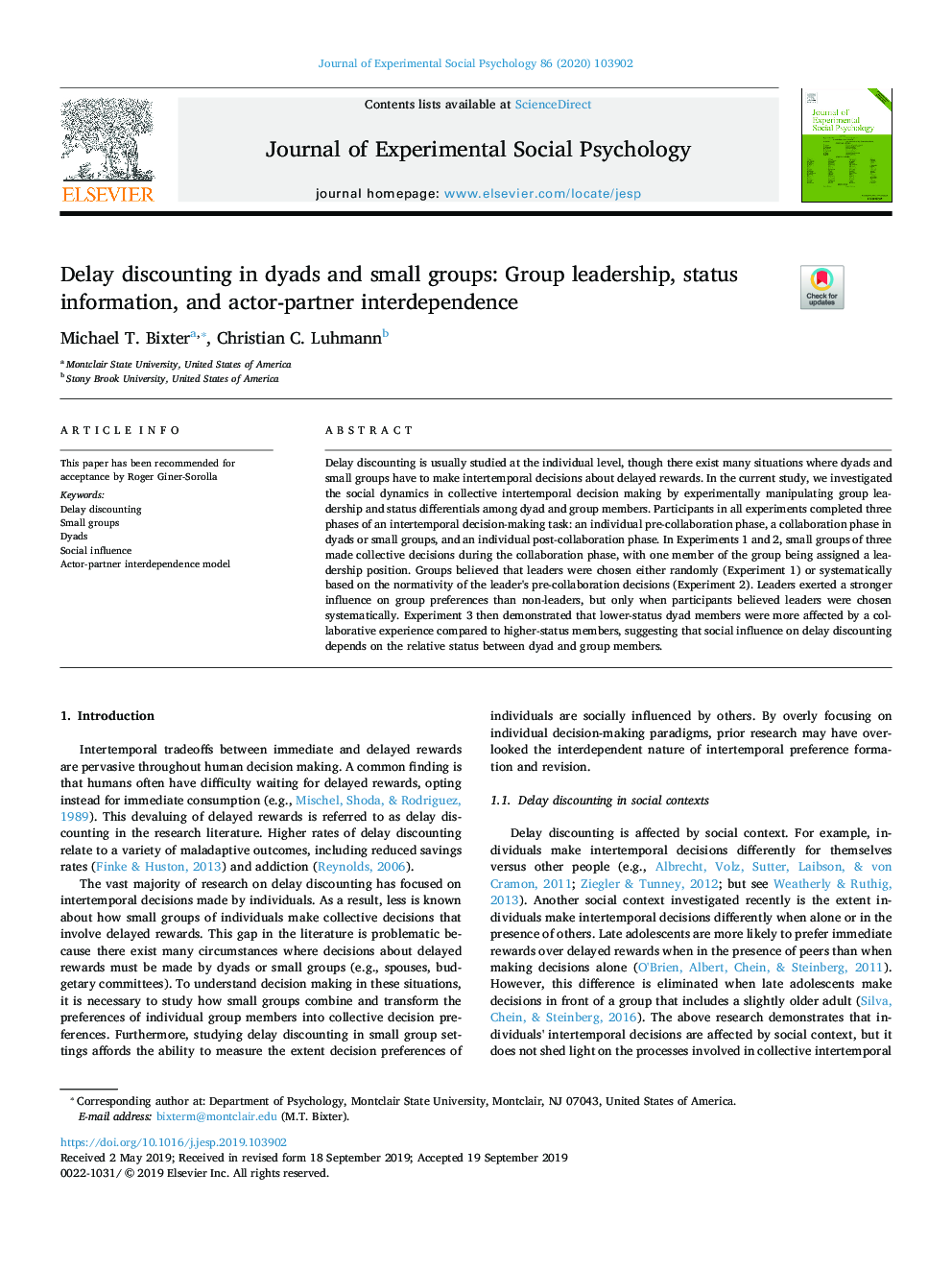| Article ID | Journal | Published Year | Pages | File Type |
|---|---|---|---|---|
| 13458807 | Journal of Experimental Social Psychology | 2020 | 10 Pages |
Abstract
Delay discounting is usually studied at the individual level, though there exist many situations where dyads and small groups have to make intertemporal decisions about delayed rewards. In the current study, we investigated the social dynamics in collective intertemporal decision making by experimentally manipulating group leadership and status differentials among dyad and group members. Participants in all experiments completed three phases of an intertemporal decision-making task: an individual pre-collaboration phase, a collaboration phase in dyads or small groups, and an individual post-collaboration phase. In Experiments 1 and 2, small groups of three made collective decisions during the collaboration phase, with one member of the group being assigned a leadership position. Groups believed that leaders were chosen either randomly (Experiment 1) or systematically based on the normativity of the leader's pre-collaboration decisions (Experiment 2). Leaders exerted a stronger influence on group preferences than non-leaders, but only when participants believed leaders were chosen systematically. Experiment 3 then demonstrated that lower-status dyad members were more affected by a collaborative experience compared to higher-status members, suggesting that social influence on delay discounting depends on the relative status between dyad and group members.
Related Topics
Life Sciences
Neuroscience
Behavioral Neuroscience
Authors
Michael T. Bixter, Christian C. Luhmann,
